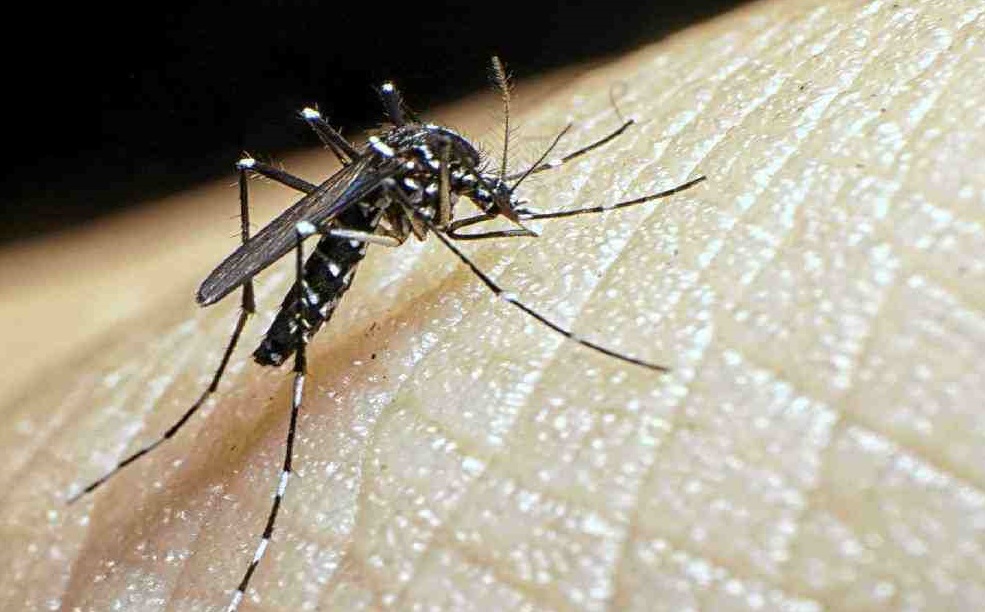Risk of dengue outbreak rises amid coronavirus lockdown
- Nayadiganta English Desk
- 03 May 2020, 12:53

Amid the countrywide lockdown to curb transmission of coronavirus, the danger and irritation posed by mosquitoes have been ignored in both Dhaka South City Corporation (DSCC) and Dhaka North City Corporation (DNCC), city dwellers claim.
They said lack of action to destroy mosquitoes by city corporations, bouts of rain from time to time and shutting down business establishments amid the lockdown allowed the mosquito menace to rear its ugly head again, reports United News of Bangladesh.
Under the circumstances of COVID-19, entomologists fear that this year Dhaka may witness an even worse outbreak of the mosquito-borne dengue fever than last year, which was the worst year on record for number of deaths from dengue, a mosquito-borne viral infection that has been endemic in Bangladesh since the early 2000s.
They point out that 296 people were already infected from January to April this year, while the number was 131 in 2019, although no deaths have been recorded.
The experts also warned that city-dwellers may witness a worse outbreak in July- August this year if proper activities to curb the menace are not carried out in a short time.
Local Government, Rural Development and Cooperatives (LGRD) Minister Md Tajul Islam said last week that mobile courts will be operated after May 10 to make sure that the breeding grounds of the Aedes mosquito, the type that acts as the vector for dengue, are destroyed.
The minister also urged everyone to remove stagnant water inside and outside of buildings. “There’ll be fine if the mobile courts find any Aedes mosquito breeding grounds inside people’s properties,” he also said.
Mosquitoes breed in stagnant water. Accumulated water in houses, roofs, bathrooms and construction sites have to be cleared.
The minister said the city corporations have stocks of mosquito-repellent medicine for one year.
Bangladesh experienced a massive dengue outbreak in 2019 when 101,354 people were hospitalised and 179 people were killed, according to official figures.
“Recently, the mosquito prevalence and bites alarmingly increased here,” said Shafiqul Islam, a resident of Najirabazar area of Old Dhaka. “Mosquitoes are gathering at different alleys following waste and water stagnation as many tenants stay home and shut business establishments in the lockdown,” he added.
He also said the officials of City Corporation operate activities only on the main roads. But there are many alleys where mosquitoes’ breeding is increasing during this period.
Another resident of Mirpur-6 Shamsunnahar Dolon said the nuisance of mosquitoes increased vastly after shutting mass transportation and business establishments. Huge mosquitoes are seen in drains and stagnant water on city roads too.
“We have to suffer now due to increase in the mosquitoes. We fear outbreak of aedes mosquito-borne dengue this year like last year. As maximum people left Dhaka and others stay at home. So mosquitoes are breeding here and there. The government should focus on this now alongside COVID-19,” she added.
Contacted, Kabirul Bashar, an entomologist of Jahangirnagar University (JU), said as light rain started occurring from early this month and hampered the activities of curbing dengue amid lockdown of COVID-19, the scientific prediction model suggests the number of dengue patients will increase substantially this year than the last year if proper steps are not taken right now.
“There is huge mosquitoes in alleys of the city as people stay at home during the lockdown. Even city corporations can’t work properly for this. So mosquitoes are breeding in this time. The rainy season will begin in full swing from June and the dengue infection is likely to soar at this time if the number of the aedes mosquitoes cannot be reduced and the breeding grounds cannot be destroyed,” he added.
“Constructions sites, bus terminals, police stations where many seized vehicles are kept at open spaces, the front and backyards of different hospitals and different government establishments are the main breeding sources of aedes mosquitos,” he also added.
The JU teacher said the ward councillors should play an effective role in creating awareness among people and identifying and destroying the breeding sources of the aedes mosquitos.
Talking to UNB, Dhaka South City Corporation (DSCC) Chief Health Officer Brigadier General Dr Md Sharif Ahmed said they were working to destroy the mosquitoes as per annual work plans.
“We work regularly to destroy mosquitoes here so we don’t see any outbreak this year like previous year,” he also said.
Dhaka North City Corporation (DNCC) chief health officer Brigadier General Momimur Rahman Mamun said they are killing mosquitoes and raising awareness.
“We are working to control the outbreak of aedes mosquito. We jointly work with different ministries and organisations like Rajuk, Dwasa, BRTA, Bangladesh Railway, BWDB, Health Services, metro rail project authorities to this end,” he added.
He urged people to clean up their homes, buildings and adjacent areas. “Don’t throw wastes everywhere and don’t allow water to stagnate anywhere. Do not place discarded green coconuts shells, bottles, plastic pots, broken utensils and abandoned flower tubs here and there.”
Mamun said cleanliness is very important to prevent mosquito-borne and other viral diseases. It is impossible for the city corporation to spray insecticides in all places. So everyone should be aware. “Letters also were sent to house owners and stockholders concerned to clean the sites,” he added.
More News
-
- ৫ঃ ৪০
- খেলা

